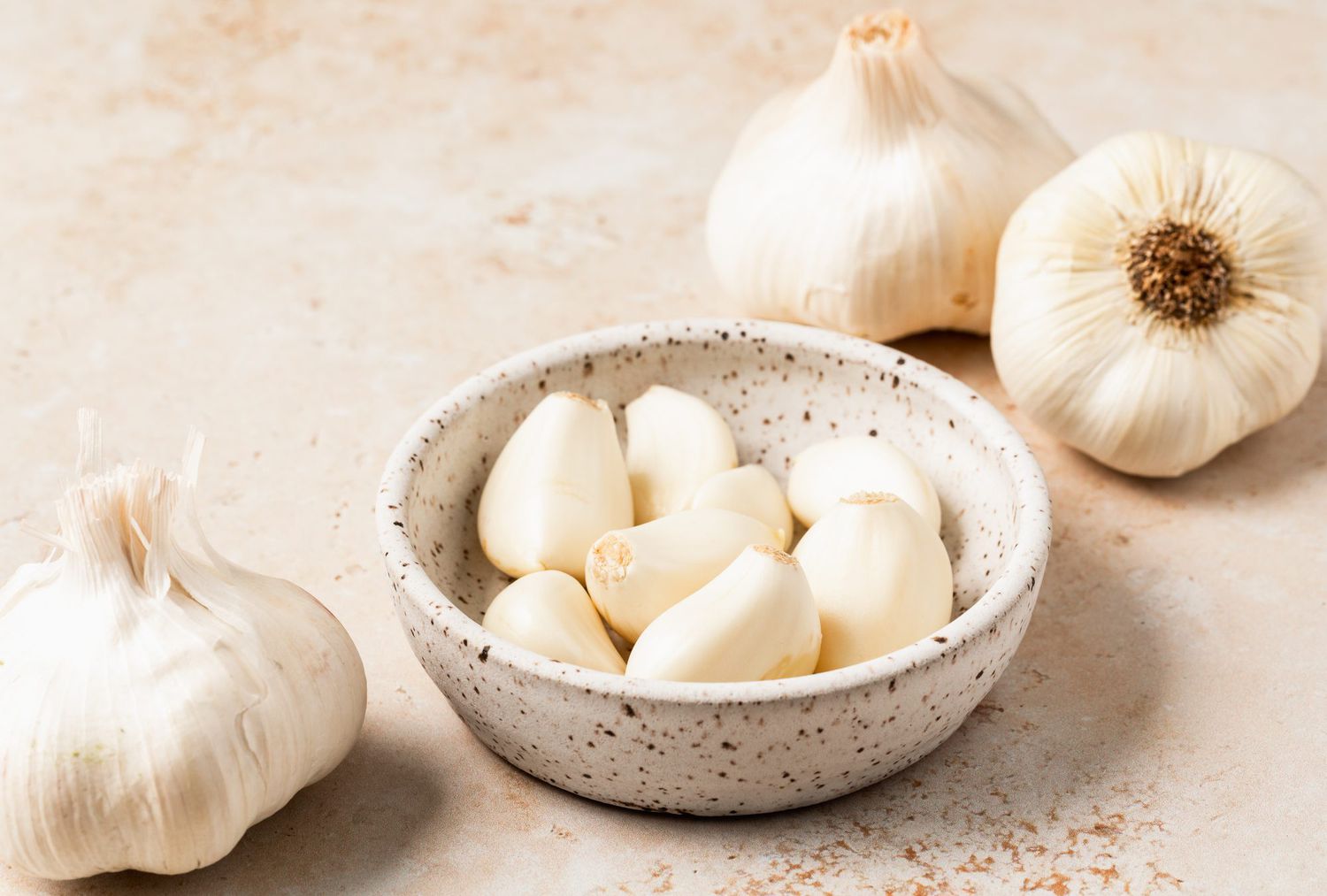
Garlic is a plant in the onion family, known for its strong flavor and health benefits. It’s used in cooking worldwide and has medicinal properties, like boosting the immune system and reducing blood pressure
It prevents cancer
Several studies indicate a positive effect of garlic consumption on the prevention of certain cancers. It is believed to reduce the risk of cancer of the stomach, throat, esophagus, colon and ovary. In addition, garlic increases the fighting rate of the immune system and helps the body to fight cancer cells more effectively.
Good for the heart
Garlic would help regulate cholesterol levels by fighting against what is called "bad cholesterol", which increases the risk of cardiovascular disease. It is therefore an indirect ally of the heart! In addition, it increases the flow of blood, which reduces the formation of clots that can block veins and arteries.
Good for losing weight
Low in calories and rich in potassium, calcium and vitamin A and C, garlic fights against bad cholesterol and promotes urinary elimination. It also stimulates the metabolism and helps burn calories. Plus, consuming garlic gives the brain signals to feel full when you eat it. Garlic is therefore your slimming ally!
Against warts
No, your grandmother did not lie to you: garlic would indeed be effective against warts. To make them disappear, just gently rub your wart with a clove of garlic. Be careful, however, to protect the skin around the wart so that it is not burned. A remedy to repeat until the total disappearance of the wart.
Against acne
Still according to our dear grandmothers, applying a clove of garlic directly to our acne pimples could work wonders. The antiseptic and antibacterial virtues of garlic would prevent inflammation of the skin.
For beautiful hair
Rich in allicin, garlic fights against dandruff and hair loss.
For beautiful nails
To restore shine to your dull or damaged nails, rub them gently with garlic. This strengthens them and helps regrowth.
Anti-allergen
Garlic is said to be an anti-allergen. It decreases the cellular response by more than 90% after exposure to an allergen.




